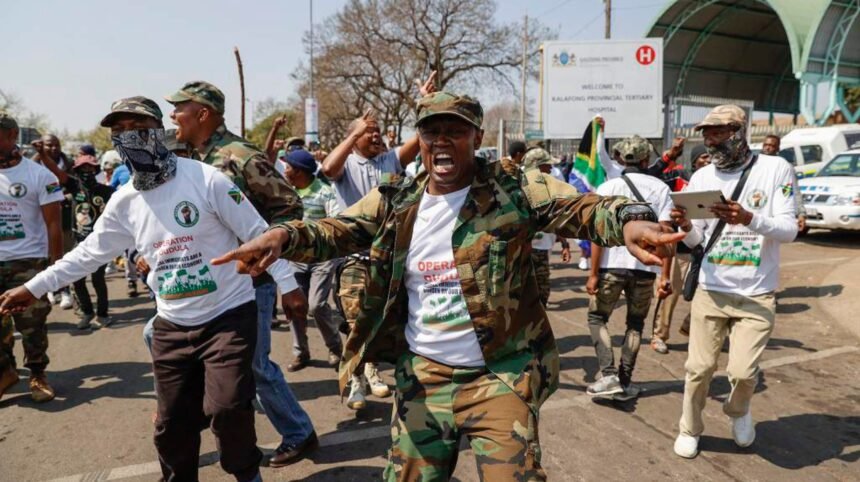Johannesburg — South Africa is grappling with a disturbing crisis as foreign nationals, both documented and undocumented are being denied basic healthcare in a surge of xenophobic hostility. The backlash stems from long-standing frustrations over immigration, with some citizens blaming foreigners for the country’s high unemployment and economic struggles.
This comes at a time when Africa is pushing for greater unity. Initiatives like the African Continental Free Trade Area (AfCFTA) promote open borders and shared prosperity. Yet, vigilante groups blocking hospitals and clinics reveal a painful contradiction: as the continent strives for integration, some communities are pushing division.
For many migrants and refugees, South Africa is no longer a sanctuary but a place of fear. Families fleeing conflict or poverty now face a new threat, being turned away from hospitals when they need life-saving care. Some foreign nationals avoid clinics altogether, fearing harassment or violence. Others report being interrogated by mobs before receiving treatment, if they’re allowed in at all.
This climate of fear undermines South Africa’s leadership in Africa. A nation known for its progressive constitution and history of overcoming apartheid now risks tolerating the exclusion of vulnerable people. What does that say about the continent’s future?
The African Union has long championed free movement and economic collaboration. The AfCFTA, the world’s largest free trade area is built on the idea that Africa thrives when people can move, work, and trade across borders. But attacks on foreigners, fuelled by misinformation and economic frustration, directly contradict this vision.
Instead of seeing migration as an opportunity, some South Africans view it as a threat. The reality? Many migrants contribute to the economy, filling critical jobs and starting businesses. Yet, when vigilantes block hospitals or politicians stoke anti-foreigner sentiment, it sets a dangerous precedent for the continent.
The hostility has turned violent. In Gauteng, members of Operation Dudula physically prevented migrants from entering a Diepsloot clinic. Similar scenes unfolded in Hillbrow, where the Patriotic Alliance stood guard outside a healthcare facility, turning away non-South Africans.
In Durban, activists from March-to-March barred foreigners from entering Addington Hospital. Videos show women and children being told: “No foreigners allowed, not even one. From today, you don’t go to any clinic in South Africa.”
The South African Human Rights Commission (SAHRC) has condemned these actions. The law is clear: everyone in South Africa, regardless of nationality or paperwork, has the right to emergency medical care. Denying treatment based on immigration status isn’t just cruel, it’s illegal.
Yet, the attacks continue. Some healthcare workers have even refused to treat foreign patients, violating both South Africa’s Constitution and international human rights laws.
While officials express “concern,” their words have done little to stop the violence. The Department of Health admits blocking healthcare access is wrong but has failed to take strong action. Meanwhile, police mostly stand by as mobs enforce their own rules.
Denying medical care doesn’t solve unemployment or fix the economy, it only creates more suffering. Diseases can spread if people fear seeking treatment. Trust in hospitals is eroding. And South Africa’s reputation as a rights-respecting nation hangs in the balance.
Leaders must enforce the law, protect vulnerable people, and address citizens’ economic fears without scapegoating foreigners. Because when mobs decide who gets healthcare, everyone loses.










